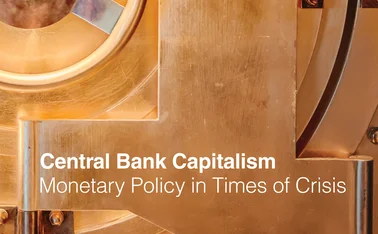
Market ‘tightness’ affects QE success – Riksbank paper
Model accounting for demand and supply of bonds allows authors to reveal new insights

The effectiveness of quantitative easing (QE) depends importantly on the degree of "tightness" in the bond market, according to a working paper published on February 7 by Sveriges Riksbank.
Marien Ferdinandusse, Maximilian Freier and Annukka Ristiniemi employ a search theoretic model, in which bond market tightness works much the same way as labour market tightness in standard models. Investors that have a stronger "preferred habitat" increase bond market tightness, and the tighter the market
Only users who have a paid subscription or are part of a corporate subscription are able to print or copy content.
To access these options, along with all other subscription benefits, please contact info@centralbanking.com or view our subscription options here: http://subscriptions.centralbanking.com/subscribe
You are currently unable to print this content. Please contact info@centralbanking.com to find out more.
You are currently unable to copy this content. Please contact info@centralbanking.com to find out more.
Copyright Infopro Digital Limited. All rights reserved.
As outlined in our terms and conditions, https://www.infopro-digital.com/terms-and-conditions/subscriptions/ (point 2.4), printing is limited to a single copy.
If you would like to purchase additional rights please email info@centralbanking.com
Copyright Infopro Digital Limited. All rights reserved.
You may share this content using our article tools. As outlined in our terms and conditions, https://www.infopro-digital.com/terms-and-conditions/subscriptions/ (clause 2.4), an Authorised User may only make one copy of the materials for their own personal use. You must also comply with the restrictions in clause 2.5.
If you would like to purchase additional rights please email info@centralbanking.com







